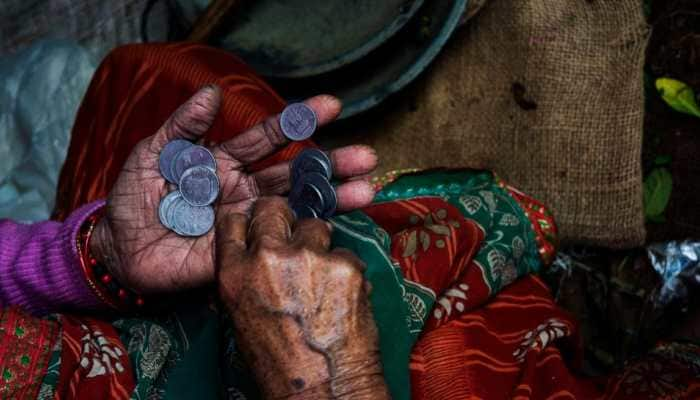Still wedded to Socialism, Congress has learnt nothing and forgotten nothing
The recent Congress plenary session has showed that the Congress still wants to undo the liberalisation that its own government started in 1991.
Trending Photos
)
It was said about the Bourbons, the ruling dynasty at the time of the French Revolution (1789), that they had learnt nothing and forgotten nothing. For, after the fall of Napoleon and their restoration, they continued with their old ways, the ways that had led to the Revolution in the first place. The 84th plenary of the Congress gives a similar message: the grand old party has learnt nothing and forgotten nothing.
Other than providing catchy quotes to the media, the Congress president Rahul Gandhi didn't offer much substantive to the country in terms of alternative policy and workable programmes. For instance, he castigated Prime Minister Narendra Modi for his "corrupt ways." He compared the 2019 general elections with the Mahabharata, in which the "power-hungry" Bharatiya Janata Party (BJP) will fight the "humble" Congress. Needless to say, in this epic battle, the BJP and the Rashtriya Swayamsevak Sangh are the Kauravas and Congress leaders the Pandavas.
However, the 'Resolution on Economic Situation In India,' approved at Plenary, gives a glimpse of the thinking in the party. The glimpse is not comforting, for it confirms the impression that the GOP remains wedded to socialism even after 27 years of liberalization-ironically carried out by its own leaders. "State ownership of businesses in certain critical sectors such as defence production, mass transportation, natural resources, and financial services is both needed and justified where maximization of value to shareholders may not be the sole measure of success," says the Resolution.
In plain English, it means that the party is not only opposed to the privatization of big public sector undertakings and banks (PSUs and PSBs) but also to the private sector participation in Railways, metro, roadways, airlines, petroleum, steel, aluminium, coal, etc. More importantly, the Congress does not like private companies to participate in defence production.
There is something very odd about the Congress's dislike for the involvement of domestic private companies in defence production, for it doesn't have problems with foreign private companies. This, by the way, was government policy till 2002, when the Atal Bihari Vajpayee regime allowed private enterprise in the sector. Announcing the change, Union Minister Pramod Mahajan had highlighted this dissonance in policy. The announcement paved the path for private companies in defence production.
Two years later, however, the Congress-led United Progressive Alliance came to power, and all progress in defence production came to a standstill. For eight years in the UPA's two tenures, AK Antony was Defence Minister. Defence preparedness suffered enormously under him; defence production hit one roadblock after the other. At the time he quit, the Indian military needed arms and ammunitions worth $100 billion. The well-known defence expert, Rear Admiral (Retired) K Raja Menon, called Antony the "worst Defence Minister ever."
Antony's biggest problem, as also of the entire UPA, was his marked tilt towards socialism. So, the eight defence PSUs, 39 ordnance factories, three defence shipyards, and 52 DRDO laboratories continued functioning in typically sarkari manner. The private sector was anyway looked at with suspicion. The upshot was that our dependence on defence imports rose to around 65 per cent.
This is not to say that all is well with private sector participation in defence in defence in particular and with Make in India Programme in general. In fact, the Modi government's performance on economic reforms is less than stellar. But the Congress seems to worse: it is against the very idea of liberalisation, if the Resolution is anything to go by.
An illustration of the GOP's fascination with socialism is its conviction that state-owned banks ought to continue. "Pinning all the woes of India's banking sector merely on state ownership of banks is a gross simplification of the problem," the Congress Resolution says.
This is factually incorrect, for Finance Minister Arun Jaitley has ruled out denationalization of PSBs, even though Chief Economic Advisor Arvind Subramanian favours privatisation. In May last year, RBI Deputy Governor Viral Acharya had also recommended the sale of some PSBs. Besides, there have been committees constituted by the Reserve Bank of India that suggested privatisation of PSBs.
It seems that the Congress wants to nip any such move in the bud. This is despite the fact that PSB re-privatisation is the solution to the banking woes. Denationalisation is necessary for two reasons. First, the taxpayer has been suffering because of PSBs: in the last 11 years, their recapitalisation has cost the exchequer Rs 2.6 lakh crore; in the next two years, about Rs 1.3 lakh crore would be needed. Second, since 70 per cent banking is in the public sector, rickety PSBs become a drag on the entire economy.
In a nutshell, the Congress offers a policy framework which is worse than stale: it not only promises ruinous schemes like farm loan waivers but also hints at reversal of liberalization, something it did when it was last in power for two terms. It was the jettisoning of economic reforms that led to humungous scams and policy paralysis. The party has not learnt any lessons from the UPA experience; nor has it forgotten the hackneyed slogans of its socialist past. Just like the Bourbons.
(Ravi Shanker Kapoor is a journalist and author. He has spent around 25 years in the media. As a freelance journalist, Kapoor has written for a number of leading publications. He has written four books on Indian politics and its associated institutions.)
(Disclaimer: The opinions expressed above are the personal views of the author and do not reflect the views of ZMCL.)
Stay informed on all the latest news, real-time breaking news updates, and follow all the important headlines in india news and world News on Zee News.
Live Tv







)
)
)
)
)
)
)
)
)
)
